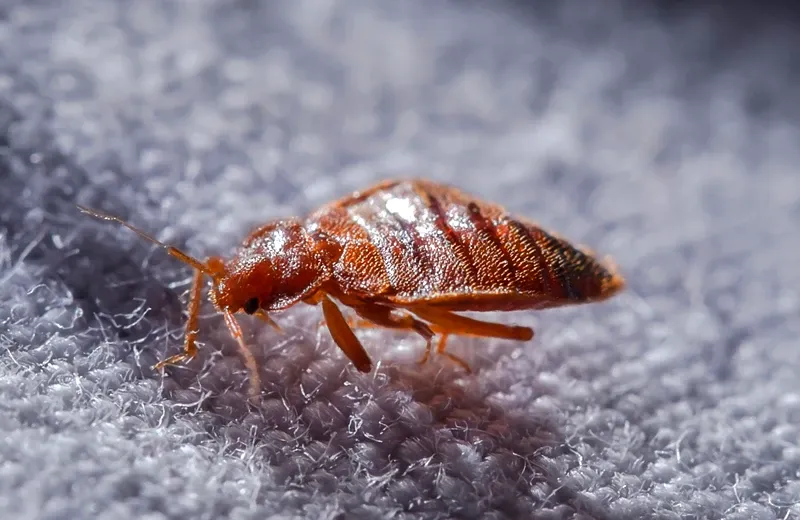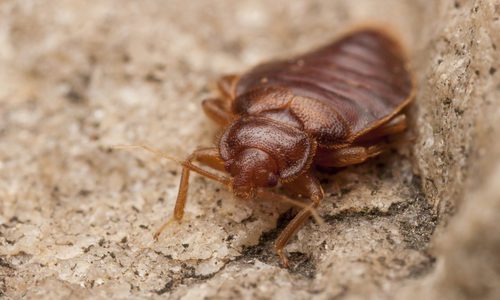Reliable Kings Bug Control Cincinnati Ohio: Reliable Solutions
Reliable Kings Bug Control Cincinnati Ohio: Reliable Solutions
Blog Article
Sorts Of Insect Control: Which Technique Is Right for Your Problem?
When encountered with a parasite invasion, the selection of an appropriate approach for bug control is important in efficiently taking care of the scenario. By checking out the various kinds of insect control methods readily available, individuals can make enlightened choices tailored to their one-of-a-kind situations, ensuring an extra sustainable and reliable result in pest elimination.
Chemical Insect Control
Chemical parasite control includes making use of synthetic or normally obtained chemicals to take care of and eliminate pest populaces efficiently. This approach is typically made use of in agriculture, forestry, and household settings to battle a wide array of parasites, including insects, rats, and weeds. The usage of chemical pesticides can offer fast and targeted solutions to pest invasions, making it a preferred choice for several individuals and companies.
Among the key advantages of chemical bug control is its ability to swiftly get rid of parasites, reducing the danger of damages to plants, home, and human wellness. By using particular chemicals that target specific bugs, this approach can effectively control invasions while lessening injury to beneficial organisms and the atmosphere when applied properly.
Nevertheless, using chemical parasite control additionally increases worries concerning possible damaging results on non-target species, water resources, and human health. It is essential to comply with security guidelines, apply chemicals responsibly, and consider alternative insect control methods to minimize these risks and ensure sustainable parasite monitoring techniques.
Organic Bug Control
Biological insect control, also called biocontrol, utilizes living microorganisms to take care of and minimize pest populaces normally. This technique utilizes the power of nature to control parasites without the demand for synthetic chemicals. Biocontrol can involve the intro of all-natural opponents of the pest types, such as virus, predators, or parasites, to reduce pest populaces. By utilizing the pest's all-natural predators or virus, biological pest control supplies a sustainable and ecologically friendly option to pest management.

Mechanical Insect Control
Using manual and physical techniques to handle parasite populaces, mechanical insect control supplies a different approach that does not count on using living microorganisms or artificial chemicals. This approach involves the usage of obstacles, catches, or other devices to physically hinder or remove bugs. By blocking insect entry factors or establishing catches to catch them, mechanical pest control can effectively lower invasions without introducing chemicals right into the setting.
One typical example of mechanical parasite control is making use of mesh screens on doors and windows to prevent pests from going into buildings. This read the full info here straightforward yet efficient method works as a physical obstacle, keeping bugs out while enabling for correct ventilation. Additionally, gadgets like mousetraps, fly look at this site swatters, and ultrasonic repellents fall under the mechanical parasite control classification.
While mechanical parasite control techniques can be labor-intensive and require routine monitoring and maintenance, they offer a lasting and eco-friendly service for taking care of insect problems. By combining various mechanical techniques, homeowner can produce a comprehensive parasite control technique that decreases reliance on chemical pesticides.
Physical Bug Control

Some usual physical bug control techniques include using barriers such as webs or displays to avoid insect entry, catches to record and eliminate insects, and hand-picking to physically get rid of parasites from plants or structures. Additionally, techniques like warmth treatments can be used to regulate bugs like bed insects by raising the temperature level to levels that are lethal to the pests.
Physical bug control is particularly useful in incorporated insect monitoring (IPM) methods, where several insect control methods are incorporated for effective parasite administration while reducing the usage of chemicals. By using physical parasite control methods, individuals can successfully deal with parasite invasions with marginal environmental influence.
Integrated Insect Monitoring
When executing physical parasite control techniques as component of pest monitoring strategies, Integrated Bug Management (IPM) becomes a comprehensive method that leverages numerous techniques to successfully control pest populations. IPM concentrates on long-term prevention of parasites through a combination of organic, social, physical, and chemical tools tailored to details pest problems. By incorporating multiple control strategies, IPM intends to decrease the risks related to insects while additionally reducing reliance on chemical services.
One trick facet of IPM is the emphasis on monitoring and examining pest populaces to establish the most appropriate control techniques. This positive strategy enables very early intervention and targeted strategies, resulting in a lot more reliable parasite monitoring. Additionally, IPM promotes eco-friendly practices by prioritizing non-chemical control methods and only using chemicals as a last option.
Conclusion

By utilizing the bug's all-natural predators or microorganisms, organic parasite control offers a ecologically pleasant and lasting option to pest monitoring. - Kings pest control cincinnati oh
Making use of manual and physical methods to handle bug populaces, mechanical bug control supplies a different strategy that does not count on the usage of living organisms or synthetic chemicals.An effective method to handling insect populations without depending on chemical or biological methods involves the use of physical pest control techniques.When executing physical pest control methods as part of parasite monitoring approaches, Integrated Parasite Monitoring (IPM) arises as a detailed method that leverages numerous strategies to successfully manage pest populations. Chemical pest control involves the usage of pesticides, organic bug control uses natural killers, mechanical parasite control includes physical barriers, physical pest control consists of trapping or removing parasites, and incorporated insect management incorporates several methods for a holistic strategy to pest control.
Report this page